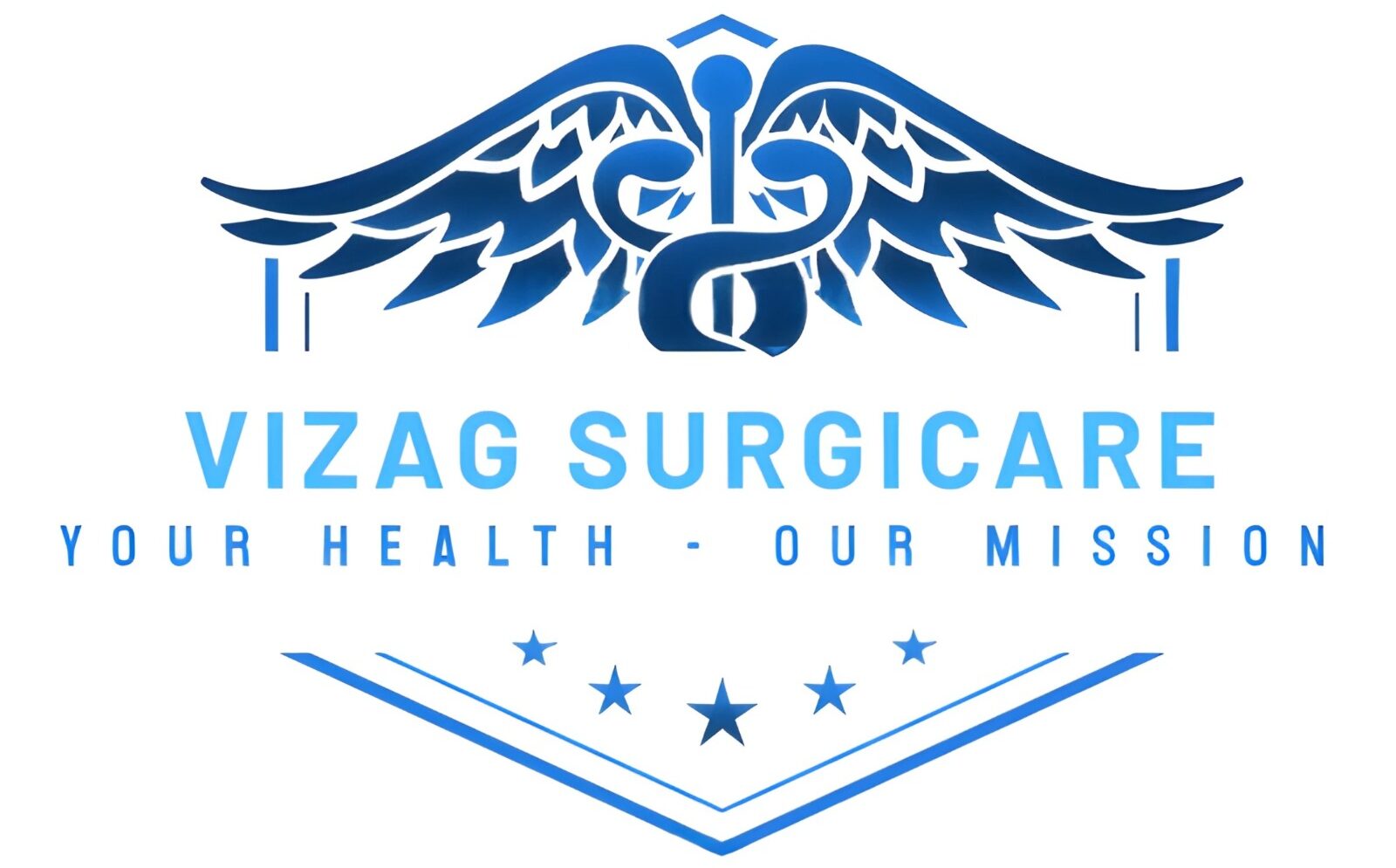Bowel Obstruction Treatment
Introduction
Bowel Obstruction is a medical emergency characterised by partial or complete blockage of the small or large intestine, preventing the normal passage of digested food and fluids through the digestive tract. This condition can significantly impair digestion, and can lead to severe complications if not treated promptly like malnutrition, intestinal perforation and severe discomfort impairing routine activity.
Here are the most common causes:
1. Adhesions (Scar Tissue)
- Most common cause, especially after abdominal or pelvic surgery. Can occur even after history of inflammatory disease.
- After surgery/ inflammation (infection), scar tissue can form and stick parts of the intestine together, causing them to twist or kink.
2. Hernias
- A hernia is when a part of the intestine pushes through a weak spot in the abdominal wall.
- If the bowel gets trapped in a hernia, it can block the passage or can cause permanent narrowing of the lumen (stricture) and can even cut off the blood supply in severe cases – usually happens when the neck of the sac is small.
3. Tumors
- Growths inside intestine or near to it causing blockage of the lumen or compress from outside.
4. Intussusception
- This is when one part of the intestine slides into another part, like a telescope.
- More common in children, but can happen in adults too.
5. Volvulus
- This is when a part of the intestine twists on itself, cutting off the flow of the contents and in extreme cases can cut off the blood supply too.
- It is a surgical emergency to restore the viability of the bowel (intestine).
6. Crohn’s Disease
- This is a chronic inflammatory condition of the intestines.
- Over time, the inflammation can lead to strictures (narrowing of the lumen) that block the bowel.
Other less common causes include:
- Foreign body (swallowed objects) – especially seen in children
- Infections or inflammation
- Radiation treatment (causing scarring)
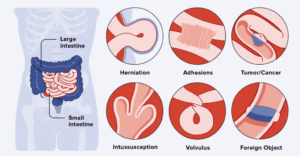
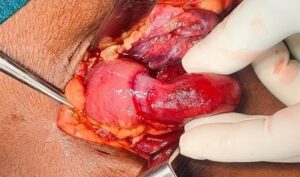
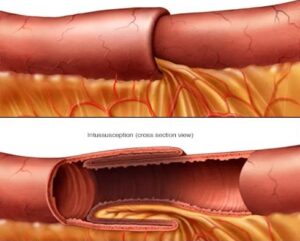
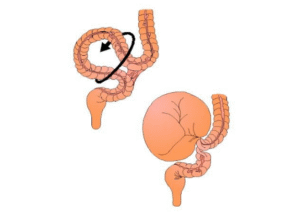

Symptoms and Diagnosis
Symptoms of bowel obstruction include abdominal pain, nausea/ vomiting, constipation and obstipation (not able to pass gas and stool), bloating, abdominal distention. In severe cases, patient may land up in sepsis with dehydration and deranged haematological parameters. Diagnosis typically begins with a physical examination, where a doctor may detect tenderness or abnormal bowel sounds (increased or absent). Imaging like X-rays and CT scan are crucial in confirming the diagnosis, identifying its location, and determining the cause. Early and accurate diagnosis helps guide effective treatment and reduce the risk of complications.
Treatment
Treatment for bowel obstruction depends on cause and its severity. It begins with adequate resuscitation and simultaneously preparing patient for surgery. Resuscitation includes nasogastric tube insertion and flatus tube to relieve pressure, intravenous (IV) fluids to correct dehydration, and close observation to monitor vitals and maintenance of output. Early initiation of antibiotics whenever required and other supportive treatment.
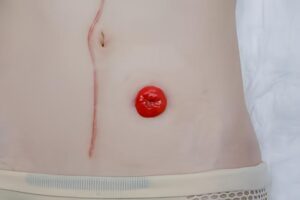
If the obstruction does not improve or if there are signs of bowel ischemia or necrosis, immediate surgical intervention is necessary. Surgical options include laparoscopic surgery (minimally invasive), or open surgery in more complex cases and extremely sick patients. The initial goal is to save the patient and decompress the distended bowel by treating the cause in single go or by initially creating a stoma (surgically created opening on abdomen for exit of intestinal contents outside the body) and treating the cause at later stages once the patient’s` general condition improves. Prompt surgical treatment is required to save the life.
Conclusion
Timely diagnosis of bowel obstruction and appropriate treatment are crucial to prevent complications like bowel necrosis (loss of viability of intestine) and saving patient’s life. If you experience any persistent abdominal symptoms, do not neglect – consult “Vizag Surgicare” for expert evaluation, advanced imaging. Both surgical and non-surgical treatment options tailored as per your condition.
contact us
Get In Touch With Us
phone number
Mobile No 1 : +91-77029 50513
Mobile No 2 : +91-9848638615
Mobile No 3 : +91-9849239213
our address
First Floor, Mohan Medical Shop, Seethammadhara (NE), Visakhapatnam-530013
email address
info@vizagsurgicare.com
